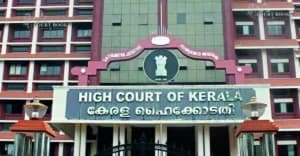The Kerala High Court has clarified that Bharatiya Nagarik Suraksha Sanhita (BNSS) and Bharatiya Sakshiya Adhiniyam (BSA) give trial courts full discretion on how to summon and examine witnesses in Prevention of Money Laundering Act (PMLA) cases. This means that trial courts can decide whether to move ahead with a PMLA trial or put it on hold until the trial for the predicate offence (the original crime that led to money laundering) is completed.
A division bench of Justice A. Muhamed Mustaque and Justice P. Krishna Kumar pointed out that delaying the PMLA trial until the predicate offence trial concludes could lead to the Enforcement Directorate (ED) losing crucial witnesses. However, the court also acknowledged that if the accused is acquitted in the predicate offence case, the entire PMLA trial could become meaningless.
Read also:Kerala High Court Directs Working Group to Formulate Ragging Prevention Rules
Court's Observations on Trial Court Discretion
The High Court ruled that trial courts must take a balanced approach depending on the nature of the case. It stated:
“The court may, in its discretion, permit the Enforcement Directorate to examine those witnesses who are required to prove the most important elements of the crime (such as the act of using the proceeds of crime or projecting or claiming it as untainted) while the trial of the predicate offence is pending. In such cases, the court may keep the examination of the rest of the witnesses in abeyance until the conclusion of the trial.”
Constitutional Challenge to PMLA Proceedings
The case before the Kerala High Court involved the constitutional validity of criminal proceedings under PMLA, especially when the alleged act of money laundering occurred before PMLA was enacted or before its schedule was amended in 2009.
The appellants argued that they cannot be prosecuted under PMLA unless they are first convicted of the predicate offence. They claimed that the PMLA trial should be put on hold until the trial for the original crime is concluded.
On the other hand, the Enforcement Directorate (ED) countered that both trials (predicate offence and PMLA) should run simultaneously. The ED suggested that the court could hold off on delivering the final judgment in the PMLA case until the predicate offence trial is completed.
Read also:NDPS Act | Bail Court Need Not Examine Breach Of Mandatory Provisions: Kerala High Court
Legal Provisions Under BNSS and BSA
The Court examined the legal provisions under BNSS and BSA to determine whether trial courts have discretion over witness summoning and examination.
BNSS Provisions on Summoning Witnesses
The court looked at Section 253 of the BNSS, which states that a trial court may issue a process for compelling a witness to appear.
"The expression ‘may … issue any process for compelling the attendance of any witness’ confers ample discretion to the trial court for taking a decision as to which of the witnesses are to be summoned before the court."
The court also cited Section 254 of the BNSS, which says that on the date fixed for evidence, the court must take all evidence presented by the prosecution.
"If the court decides not to issue process to certain witnesses, by exercising its discretion under Section 253, the court is not bound to examine them on the date fixed for the prosecution evidence."
The court noted that Section 253 of the BNSS corresponds to Section 230 of the Code of Criminal Procedure, 1973. This provision allows criminal courts to decide which witnesses should be summoned first while setting a date for prosecution evidence.
BSA Provisions on Witness Examination
The Court also referred to Section 140 of the BSA, which allows trial courts to decide the order in which witnesses should be produced and examined.
Ultimately, the High Court held that trial courts have full discretion to either proceed with the PMLA trial or wait until the predicate offence trial is completed.
“If the court finds that the above course prejudices either side, it should proceed with the trial in a full-fledged manner and postpone the pronouncement of judgment until the trial of the predicate offence is concluded.”
In this particular case, the High Court found that the Enforcement Directorate had sufficient material to take action under PMLA. The Court observed:
“The materials available before us prima facie indicate that the Directorate initiated actions against the appellant/petitioners under the PMLA on the basis of some materials. The sufficiency of the materials for attracting the penal offences is a matter to be looked into by the trial court.”
Additionally, the Court noted that the ED had not yet submitted a final report in these cases due to the court's interim directions. The parties involved still have the right to challenge criminal proceedings if they can prove that there was no illegal activity after PMLA was enacted or amended.
As such, the appeals were dismissed.
Case Title: A.K Samsuddin & Connected Cases
Case No: WA NO. 2076 OF 2016 & Connected Cases















